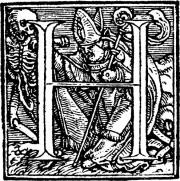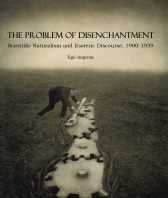Wouter Hanegraaff has typed up a nice little review of my book, Arguing with Angels, over at his Creative Reading blog. He has many kind words, but I am first of all pleased that there are some very good observations about what I attempted to achieve in it: first to expel some common myths in the historiography of Dee reception, and secondly to highlight the “authenticity problem” struggled with in modern and contemporary ritual magic in general, and Enochian magic in particular. Wouter’s observations even point out wider connections that I did not explore explicitly in the book – namely that the authenticity dilemma finds similar responses in Western religious history more broadly, as prototypically expressed in the camps variously emphasising scripture, tradition, or personal experience during and following the Christian Reformation. (Incidentally, I recently explored these themes in an article on (neo)shamanism that is still to appear in a Norwegian journal – that one, in turn, influenced by Wouter’s own work. The non-vicious, beneficent spirals of academia.)
Arguing with Angels in paperback
My first book, Arguing with Angels: Enochian Magic and Modern Occulture, is about to be released in paperback. This means that one can finally get it at a more reasonable price: $24,95. The paperback is officially released by the publisher on January 1, so just a little too late for a Christmas present, but it can already be pre-ordered from the SUNY website.
For more information about the book, with links to reviews and discussions online, go here.
On Enoch reception and Dee reception
There has been some debate about aspects of my book the last couple of days, following Dan Harms’ review, and my own response. Sarah Veale joined in with a post over at Invocatio, and today Dan responded once more on his blog. The debate has revolved around the Enoch figure, and the role of this figure in understanding Dee’s angel conversations. I argued that too much importance has typically been attributed to the patriarch in accounts of the angel diaries, and that the term “Enochian magic” may itself be somewhat misleading in this regard. I still stand by this claim, but I must also guard against a misunderstanding that seems to creep up.
Arguing with Angels – another book you should get next year
 A bit of shameless self-promotion: A pre-production description has recently been released by State University of New York Press, announcing the publication of my first book, Arguing with Angels: Enochian Magic and Modern Occulture. It is due in May 2012. As SUNY’s summary states, the book is an exploration of the Elizabethan philosopher John Dee’s system of angel magic, but in particular its reception history and various reinterpretations in modern times. It follows the creation of what is usually known as “Enochian magic”. Since 19th century occultism, and continuing in 20th century and contemporary occulture, this system has been understood in a variety of ways as it has become embedded in a number of different occult currents and practices.
A bit of shameless self-promotion: A pre-production description has recently been released by State University of New York Press, announcing the publication of my first book, Arguing with Angels: Enochian Magic and Modern Occulture. It is due in May 2012. As SUNY’s summary states, the book is an exploration of the Elizabethan philosopher John Dee’s system of angel magic, but in particular its reception history and various reinterpretations in modern times. It follows the creation of what is usually known as “Enochian magic”. Since 19th century occultism, and continuing in 20th century and contemporary occulture, this system has been understood in a variety of ways as it has become embedded in a number of different occult currents and practices.
The book pays special attention to the discussions and quarrels among occultist groups and practitioners over the “right” interpretation, and discusses the various claims that are made to legitimise such positions – vis-a-vis competing occultist interpretations on the one hand, and a generally perceived “disenchanted” modern society on the other. Among the main protagonists we find the Hermetic Order of the Golden Dawn, Aleister Crowley, Israel Regardie, Paul Foster Case, Anton LaVey and the Church of Satan, Michael Aquino and the Temple of Set, the obscure Order of the Cubic Stone, the Aurum Solis, and scores of cyber-age ritual magicians, debating the nature of angels and magical ritual online.
The book will appear in the SUNY series on Western Esoteric Traditions, which has previously published such classics in the field as Antoine Faivre’s Access to Western Esotericism, Joscelyn Godwin’s Theosophical Enlightenment, and Wouter Hanegraaff’s New Age Religion and Western Culture. There is no cover art up yet (this should be in place soon, my editors say), but below is the full publisher’s description:






